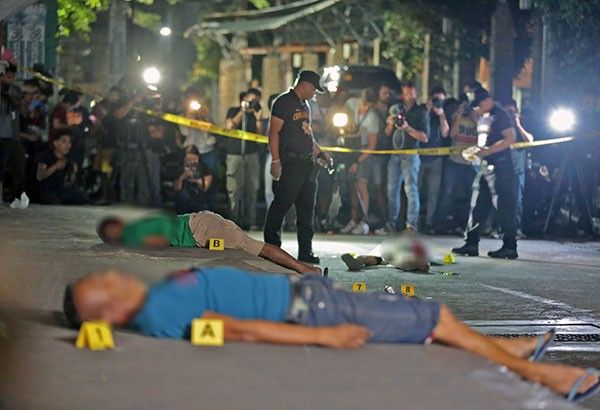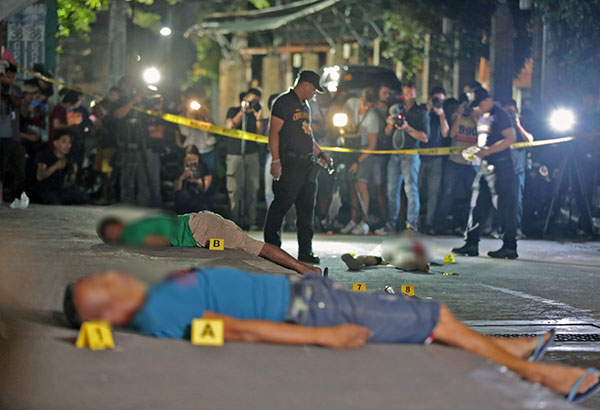Philippine Coalition for the ICC: Use of deadly force valid, but must be justified

MANILA, Philippines — A civil society group on Tuesday called for state-sanctioned probes into alleged extrajudicial killings linked to the Duterte administration's so-called war on drugs — even the ones supposedlly committed in self-defense.
"Self-defense is a valid reason to kill. Nanlaban, eh," Dr. Aurora Parong, chairperson of the Philippine Coalition for the International Criminal Court, said on ANC's "Early Edition."
"[But] even if a suspect fights back, there has to be first immobilization. The use of force cannot just be used to kill people. The work of the police should be to just arrest a person who may have been issued a warrant of arrest because they are pushing [or] using drugs."
According to the Revised Philippine National Police Operational Procedures released in 2013, "the excessive use of force during police operation is prohibited" but "in the lawful performance of duty, a police officer may use necessary force to accomplish his mandated tasks of enforcing the law and maintaining peace and order."
According to procedure, a police officer shoudl first issue a verbal warning, which should include "identifying himself; his intention; and what he wants the offender to do."
The manual says, however, that police officers are not required to give "offender/s attacking him the opportunity for a fair or equal struggle."
"The reasonableness of the force employed will depend upon the number of aggressors, nature and characteristic of the weapon used, physical condition, size and other circumstances to include the place and occasion of the assault," it also says.
'Drug personalities' killed in operations
Parong cited figures from human rights groups who have long been saying that the number has already reached up to 27,000 who were killed but not necessarily during official police operations.
In opposing these figures, the PNP's own data, which is available on their website, only officially claims the deaths of some 5,000 "drug personalities."
This came after the prosecutor of the International Criminal Court released the court's preliminary report that said that their probe into President Rodrigo Duterte's 'war on drugs' would be finalized by the year 2020.
"Even if they're not police, there should be that responsibility of the police to investigate [the deaths]," Parong said.
"It should be their responsibility to investigate any crime, including the crime of killing or murder. Any killing in any police investigation should really be investigated."
That the suspects fought back and "forced" police officers to "neutralize" them is a recurring theme in police reports of anti-drug operations.
READ: ‘Nanlaban’ survivor wins drug case
Parong also said that in many of the cases reported on by human rights groups, "it wasn't just one bullet" that was fired.
Autopsies found that most of the wounds on the bodies, she said, were found in areas that would critically injure a person, not in areas that would immobilize them like their limbs.
"It has also been shown that many of those nanlaban are natutulog, hawak ang anak, o kaya nakikipagkwentuhan, o kumakain," she explained.
(It has also been shown that many of those who supposedly fought back were asleep, holding their children, or even chatting and eating.)
The Philippines and the ICC
The Philippines officially pulled out of the ICC on March 17, 2019.
However, the ICC asserted that this had "no impact on ongoing proceedings" as the matter, among others brought to the attention of the court, "was already under consideration by the Court prior to the date on which the withdrawal became effective."
Thus, the ICC may still exercise jurisdiction during the period when the Philippines was still a state party, from November 1 2011 until March 16, 2019 because the Philippines deposited its ratification to the Rome Statute on August 30, 2011.
"As of now, there should be cases that should be filed against those [cases with] the possibility of having used force without a good reason not in self-defense," Parong said.
"Pero kung wala naman talagang panlalaban [ay] wala talagang dahilan para papatayin mo."
(But if they didn't really fight back, there is really no reason to kill.)
- Latest
- Trending






























